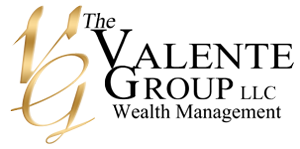How to Understand Mortgages Better
Mortgages can be a tricky area indeed. If you are purchasing a home, your broker will advise you to invest in a certain kind of mortgage, while someone else might tell you that this particular plan isn’t suitable. Rather than getting confused and repenting your decisions later on, it is best to understand the different types of mortgage so you can get a brief idea about the mortgage you qualify for. When it comes to fixed and adjustable rate mortgage, you have to understand the basics of both so as to make an informed decision. Your future ability to pay is an important factor as it affects your mortgage costs.
Fixed Rate Mortgages
The interest rate remains the same for the entire period of the mortgage. Since you know the exact amount of mortgage payment you have to shell out, it becomes easier to manage your personal finances.
Pros
- As already stated, since interest rate is fixed, a lower initial rate stays the same till the full term is completed.
- Fixed monthly payment for the entirety of the loan, so you don’t have to worry about fluctuations in interest rates.
- Gives you a chance for better proactive planning.
Cons
- Initial monthly payments might be higher unlike those of adjustable rate mortgages,
- The plan isn’t that flexible.
Adjustable Rate Mortgages
As is evident from the name, the interest rate and monthly payments keep changing and generally begin lower as opposed to a fixed rate mortgage. But you also have to factor in the risk of rate and payment swinging either way at least once or twice a year since the adjustment depends upon a financial index. The principal and interest payment will be modified as per ups and downs in the interest rates for the duration of the loan.
Pros
- Initial sums of money are on the lower scale as the interest rate is less.
- You can qualify for a bigger loan amount as the initial interest rates are low.
- Interest rate caps restrict the maximum interest payment that is allowed for the loan.
- If interest rates go down, the payments drop subsequently.
Cons
- It doesn’t allow for proactive planning since the future monthly payments are not fixed.
- Lower interest rates and monthly payments are on a temporary basis that is only applicable in the case of the first period of adjustment.
- If interest rates go up, your payment will increase too.
Although mortgages depend on other factors, it is advisable to opt for a fixed rate mortgage if you wish to keep your home for many years and calculate monthly expenses as per a budget.


